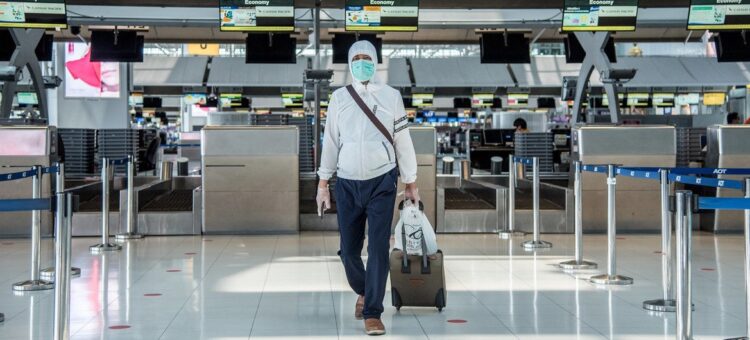The hospitality industry has been significantly impacted by the pandemic, with travel restrictions, reduced demand, and safety concerns leading to decreased revenue and job losses. Recovery strategies, including adapting to new health and safety protocols, implementing technology solutions, and targeting domestic travel, are essential to the industry’s survival and success.
The COVID-19 pandemic has had an unprecedented impact on the global economy, with the hospitality industry being among the hardest hit. The pandemic’s effects have been felt by hotels, restaurants, and other hospitality-related businesses, leading to job losses and decreased revenue. This article explores the impact of COVID-19 on the hospitality industry and outlines recovery strategies.
Impact of COVID-19 on the Hospitality Industry
The COVID-19 pandemic has had a significant impact on the hospitality industry, which includes hotels, restaurants, bars, and other businesses that offer accommodation and dining services. The pandemic’s effects have been felt worldwide, with travel restrictions, reduced demand, and safety concerns leading to decreased revenue and job losses.
One of the primary impacts of COVID-19 on the hospitality industry has been the travel restrictions imposed by governments worldwide to contain the spread of the virus. The restrictions have significantly reduced the number of tourists and business travelers, leading to a decline in revenue for hospitality businesses.
Another impact of the pandemic has been the reduced demand for hospitality services. Due to safety concerns and financial constraints, many consumers have been reluctant to travel or dine out, resulting in decreased occupancy rates for hotels and restaurants.

Guests are also increasingly concerned about their safety and health while traveling, leading to increased demand for health and safety protocols. Hospitality businesses must implement comprehensive health and safety measures to rebuild consumer confidence and ensure guest safety.
The pandemic has also resulted in job losses and decreased employment opportunities for hospitality workers. With decreased demand for hospitality services, many businesses have had to lay off employees or reduce their working hours.
Overall, the impact of COVID-19 on the hospitality industry has been significant and far-reaching. To survive and thrive in the post-pandemic era, hospitality businesses must adopt new strategies and adapt to changing circumstances.
The hospitality industry has been significantly impacted by COVID-19, with travel restrictions, reduced demand, and safety concerns leading to decreased revenue and job losses.
The following are some of the pandemic’s effects on the industry:
- Travel Restrictions – Travel restrictions imposed by governments worldwide have significantly reduced the number of tourists and business travelers.
- Reduced Demand – Due to safety concerns and financial constraints, demand for hospitality services has decreased significantly.
- Safety Concerns – Guests are increasingly concerned about their safety and health while traveling, leading to increased demand for health and safety protocols.
- Job Losses – The pandemic has resulted in job losses and decreased employment opportunities for hospitality workers.
Recovery Strategies for the Hospitality Industry
To recover from the impact of COVID-19, the hospitality industry needs to adopt new strategies and adapt to changing circumstances.

The following are some recovery strategies that can help the industry bounce back:
- Health and Safety Protocols: Hospitality businesses must implement comprehensive health and safety protocols to rebuild consumer confidence and ensure guest safety. This can include measures such as contactless check-in, enhanced cleaning procedures, and social distancing measures.
- Technology Solutions: Implementing technology solutions such as contactless check-in, digital menus, and online reservations can help minimize physical contact and improve the guest experience. Additionally, technology can be used to enhance communication with guests and facilitate remote work for employees.
- Targeting Domestic Travel: With international travel still limited in many parts of the world, hospitality businesses can focus on domestic travel to make up for lost revenue and rebuild their customer base. Marketing campaigns that promote local attractions and experiences can help attract domestic tourists.
- Reducing Costs: Reducing operating costs by implementing cost-saving measures can help businesses weather the pandemic’s financial impact. This can include measures such as reducing staff or operating hours, renegotiating contracts with suppliers, and optimizing inventory management.
- Diversifying Revenue Streams: Diversifying revenue streams by offering alternative services such as takeout and delivery can help businesses stay afloat. This can include launching new services such as meal kits, grocery delivery, or virtual events.
- Marketing Campaigns: Launching targeted marketing campaigns to promote safe travel and hospitality can help attract customers and rebuild consumer confidence. Messaging that emphasizes health and safety measures, flexible cancellation policies, and local experiences can be effective.
- Employee Training: Providing employee training on health and safety protocols and implementing employee wellness programs can help maintain a healthy workforce and improve employee morale. Additionally, cross-training employees in different roles can help businesses adapt to changing circumstances.
- Collaboration: Collaboration with other businesses and industry organizations can help share knowledge and resources and build resilience. This can include partnering with local tourism boards or participating in industry-wide initiatives.
- Flexibility: Being flexible and adapting to changing circumstances is essential for the hospitality industry to survive and thrive in the post-pandemic world. Businesses that can quickly pivot their operations to meet new demand and changing regulations will be better positioned to recover.
Overall, recovery strategies for the hospitality industry should prioritize health and safety, technology adoption, cost optimization, diversification of revenue streams, marketing, employee wellness, collaboration, and flexibility. By adopting these strategies and being adaptable, the hospitality industry can bounce back and thrive in the post-pandemic era.
Conclusion:
The COVID-19 pandemic has had a significant impact on the hospitality industry, leading to decreased revenue and job losses. Recovery strategies, including adapting to new health and safety protocols, implementing technology solutions, and targeting domestic travel, are essential to the industry’s survival and success. By adopting these strategies and being flexible and adaptable, the hospitality industry can bounce back and thrive in the post-pandemic era.
























